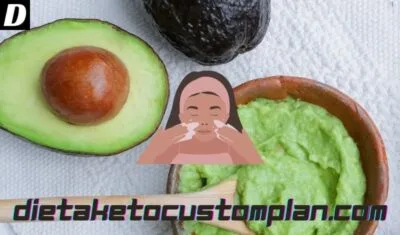Blackberries are edible fruits with a high nutrition value. These delicious berries come from the caneberries family.
June to August are the common harvest season of blackberries. Blackberries are full of both macronutrients and micronutrients.
So, can you have blackberries on keto? Yes with less than 5 grams of net carbs, blackberries are ok on the keto diet fruits list.
Why Insert Blackberries on Keto?
Blackberries are moderately high in total carbs. One 100 gram serving of blackberries contains 9.61 grams of carbs.
However, it also contains 5.3 grams of dietary fiber. As dietary fibers are not digested by our bodies, it is omitted from total carbs during the calculation of net carbs.
After deduction of the dietary fiber, the net carbs of blackberries come down to 4.31 grams. This little amount of net carbs is perfectly ok for any standard keto diet plan.
Because of this low carb dieters can insert blackberries on a keto meal plan without any hesitation.
Are Blackberries Ok On Keto?
Yes, the low net carb formula of blackberries helps a keto dieter to maintain a daily limit of 30 grams net carbs. Furthermore, the tiny amount of net carbs will not kick you out of ketosis at any cost.
That’s why blackberries are ok on keto. Moreover, keto friendly blackberries are full of essential nutrients like protein, fiber, vitamins, minerals, and antioxidants.
Because of these useful nutrients, blackberries can aid in multiple health benefits. The low GI value of blackberries makes it among the top keto fruits for diabetes.
Aside from this, other most essential health benefits of blackberries from useful nutrients are:
High Fiber Benefits
Blackberries are a rich source of dietary fiber. Dietary fiber is an essential nutrient that provides several health benefits.
Dietary fiber intake promotes weight loss in adults with overweight or obesity consuming a calorie-restricted diet. Moreover, it is independent of macronutrient and caloric intake (1).
Also, fiber rich diet has benefits over the prevention of gallstone disease (2). That’s why the high fiber density of blackberries may prevent gallstones.
Furthermore, dietary fiber can improve the gut microbiota metabolism of chronic kidney disease patients by reducing the bacterial generation of uremic toxins. It may even have benefits in dialysis patients also (3).
Some other benefits of dietary fiber are (4)
- Reduction of constipation by increasing stool bulk
- Prevention of type 2 diabetes by controlling prediabetes HBa1C range
Moreover, high fiber intake may have benefits over fatty liver disease for obese people. Because of this blackberries are one of the best fruits for the liver.
Good Source of Magnesium
Low carb blackberries are a good source of magnesium. Magnesium is among the topmost essential minerals for the human body.
It may help to improve bone health directly and indirectly by regulating calcium and vitamin D intake.
Magnesium is vital for biochemical processes in the cell involving the formation and utilization of ATP. This macromineral is required for DNA replication, transcription into RNA, translation into protein.
Moreover, a high intake of both dietary and supplementing magnesium has an inverse relationship with (5)
- Insulin resistance
- Hyperglycemia
- Dyslipidemia
- Hypertension
- Inflammation
Vitamin C Benefits of Keto Blackberries
Keto blackberries contain almost one-third RDA amount of vitamin C. Vitamin C or ascorbic acid is well known for several health benefits.
The most important health benefits of vitamin C are (6, 7, 8, 9):
- Protection of the body against the free radicals damage
- Prevention of scurvy disease
- Boosting immune defense by aiding cellular functions of both the innate and adaptive immune system
- Protection against environmental oxidative stress
- Aid in the reduction of breast cancer cells
- Wrinkle and dark spot reduction
- Skin healing and hydration
- UV ray protection
- Skin toxin removal
Adverse Effect of Surplus Blackberry Consumption
A normal intake of blackberries is free from side effects. However, the high nutrient profile may cause adverse health effects in the case of surplus consumption of blackberries.
These side-effects occur because of the high fiber and vitamin C component of blackberries. Let’s check what are the side effects arise from excess consumption of blackberries.
Vitamin C Side Effects
The high consumption of vitamin C or ascorbic acid components may cause (10, 11)
- Headaches
- Flushing
- Nausea or vomiting
- Dizziness
- Kidney stones
- Gastritis or ulcers
- Heartburn
High Fiber Side Effects
Surplus consumption of high fiber may promote (12)
- Bloating
- Abdominal pain
- Constipation
Blackberry Nutrition
Blackberries are a great source of nutrients. The nutrition value of raw blackberries against 100-gram serving size is (13):
- Calorie: 43
- Fat: 0.49 g
- Fiber: 5.3 g
- Carbs: 9.61 g
- Protein: 1.43 g
- Sugar: 4.88 g
How to Store Blackberries
Fresh blackberries can last for 3-4 days at normal room temperature. However, the life span of blackberries can be increased to 6-8 days by following a proper storage formula.
It is achieved by placing blackberries in a freezer. But, container selection is the most crucial step before putting blackberries in the refrigerator.
Both the plastic clamshell and cardboard berry box are the perfect container for blackberry storage. Although you can also use a normal container that is not air-tight for blackberry storage.
After the finalization of the container, you need to keep blackberries in a freezer for one week before consumption.
How to Eat Blackberries
Blackberries are normally eaten raw. The whole fruit is eaten without omitting any part of this delicious low carb fruit.
However, some people remove the seeds during blackberry consumption. Several healthy dishes contain keto-friendly blackberries.
The most popular blackberry dishes are
- Blackberry and avocado low carb juice
- Oatmeal blackberry
- Blackberry fat bombs
- Blackberry muffins
- Dark chocolate coated blackberries



